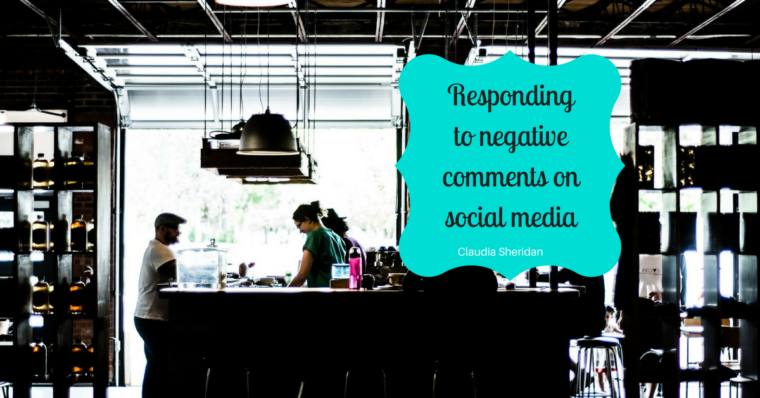When you open yourself up to do business, you’re also opening yourself up to critique.
Give an unsatisfied customer a smartphone, and just like that — social media sites become a pulpit of sorts. I admit: Addressing complaints is not the most glamorous part of social media or business, but there is a right and a wrong way to do it.
Let me give you an example.
A local business owner extended a promotion through one of those coupon sites, but it had expired. A woman purchased the offer but did not redeem it in time. When she contacted the business, she was informed of the expiration. She didn’t like that the coupon had expired and felt that it should be honored. The business owner agreed, however, she didn’t feel like she was treated correctly, so she took to the business’s Facebook Page to voice her dissatisfaction. The business owner responded to the complaint with the “rest of the story;” however, it only seemed to agitate her further, and comments continued on both sides. In the end, nobody appeared to be satisfied, and the woman took to a second social media channel to voice her dissatisfaction.
Now, had this exchange occurred in person, it probably wouldn’t have been that big of a deal. A conversation would have transpired, and everybody would have gone about their day. But since this conversation occurred on social media, it lingers.
So what could have been done differently?
There are many ways to handle a negative situation in person, but when it comes to social media, it’s a little different.
Why?
Social media is public. Whereas some think a Facebook post is private because personal profile security settings specify it as such, the truth is any post made on a Facebook Business Page is, in fact, public. When you respond to a post on a Facebook Business Page, your post is there for the world to see.
So what should I do?
Respond. Yes, you should respond to complaints, and you should do so swiftly and professionally. By avoiding a comment, you’re sending the message that you’re ignoring the issue. Think about it, how did it feel the last time you were ignored? Not good, right? So don’t ignore the comment. When responding, craft a respectful response that shows understanding and respect. If the comment does not include a question, then something like, “Thank you for reaching out to us,” should suffice.
How should I respond?
Be timely in your response. When a person is upset, it is natural for them to be less patient than normal. According to an article by Convince and Convert, available at bit.ly/2iJkonG, Jay Baer writes, “42 percent of consumers complaining in social media expect 60-minute response time,” and “32 percent expect a response within 30 minutes.” Additionally, “57 percent expect the same response time at night and on weekends as during normal business hours.” After all, Facebook is open 24/7, so why aren’t you?
Now we know responding within 30 minutes during off hours may not always be possible, but it is important to recognize that unaddressed comments will live on during that time, and your client’s agitation is probably growing. I know, this doesn’t seem realistic, but if you’re playing in the social media sandbox, you need to be ready.
Take it offline.
Whenever possible, do what you can to take the conversation offline. You can do this by asking the person to send you a private message, or invite him or her to call your office to resolve the matter. For example, respond with: “I’m sorry this happened. I am sending you a private message now, so I can get your information and resolve this as soon as possible.”
Avoid removing negative comments.
At least not right away. Think about it, if you remove a comment from an upset customer right away, how do you think they will respond? My guess is they’ll only get angrier and more frustrated. Therefore, they’ll just be a little louder next time. Rather than limiting a post to your business page, they may consider multiple social media channels or review sites. Why escalate a situation when you can mitigate it?
Concerned about what other’s may think? You should be; after all, it’s your reputation on the line. When researching businesses to work with, people understand you can’t make everybody happy 100 percent of the time. So an honest moment of frustration will be forgiven. In fact, if you handled the situation correctly, the customer may remove the complaint on his or her own. The only exception here is if the comment is hateful or unreasonable. If a comment is hateful and unreasonable, then, by all means, remove it.
The next time you come across a negative response on your social media site, consider using this quick checklist:
- [ ] Respond quickly
- [ ] Thank them for sharing their opinion
- [ ] Offer a brief apology
- [ ] Take the conversation offline
- [ ] Follow-up
As a business owner, the original complaint isn’t the issue; how the claim is handled is of more value. So remember to handle it with grace.
Originally published at claudiasheridan.com on January 22, 2017.


